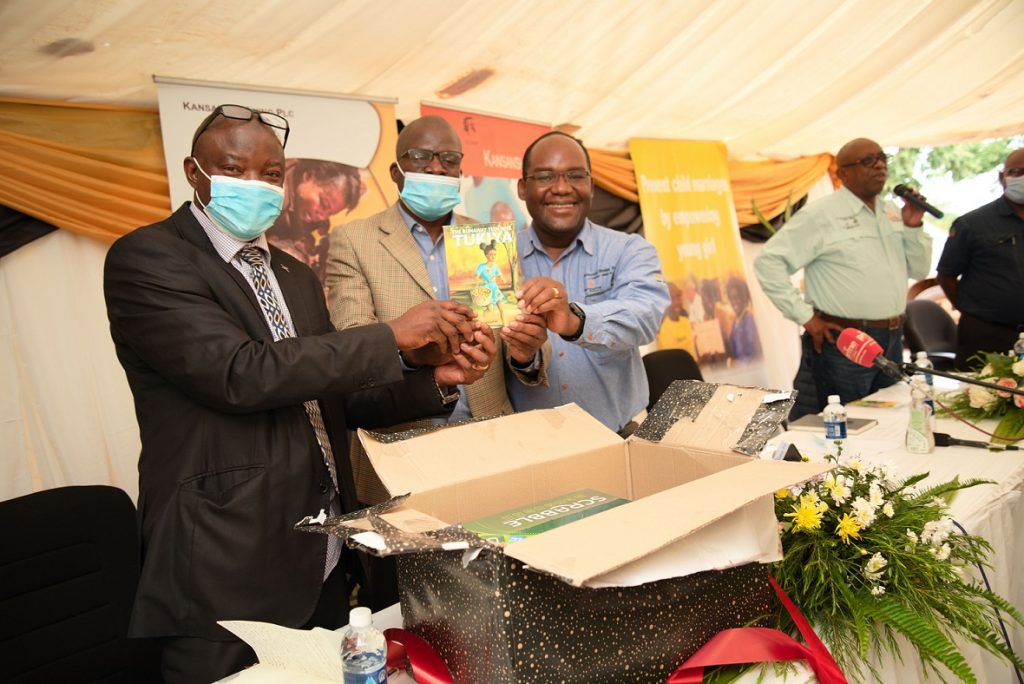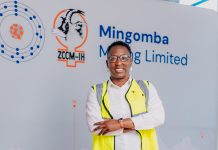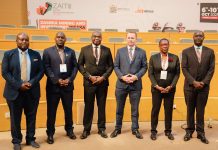“It is difficult – if not impossible – to imagine a group, or a district, or a nation of people thriving without literacy. Basic literacy is, if we’re honest, a bare minimum: an essential building block of a much bigger picture of social and economic development. ‘Quality Education’ is the fourth of the United Nations’ 17 Sustainable Development Goals (SDGs), which involves “ensuring inclusive and equitable quality education” – as well as promoting “lifelong learning opportunities for all.”
North-Western Province-based Kansanshi Mining Plc – run by First Quantum Minerals (FQM Zambia) – has made education one of its top priorities for the last decade, directing considerable effort and financial investment toward ensuring that the communities in and around its operations experience a noticeable improvement in literacy levels and quality of education.
Every year since 2013, the miner has committed to donating consignments of books and other materials to the Government and public libraries, in a quest to plug resourcing gaps that can have extremely detrimental consequences on learners’ educations. So far, it has succeeded in reducing the textbook-to-pupil ratio in mine-supported primary schools from over 20 pupils per book to a manageable three pupils sharing a book, on average.
From literacy to love of literature
Although Zambia’s substantially increased Constituency Development Fund is expected to eventually address the shortage of resources in schools, offering free education without simultaneously providing the necessary infrastructure and support is creating problems, according to educators in the province. Kansanshi has provided an average of 100 desks every month since 2016 in an attempt to address this immense gap and, earlier this year, supplied schools with 712 specialist chairs and 89 specialist tables, designed to meet requirements for early childhood development.
Naturally, ensuring that schools have textbooks and chairs and tables is hugely important. But basic measures can only guarantee that basic needs are met, and FQM Zambia emphasises the importance of taking a longer view. While the textbooks that the company has provided over the years are essential in the delivery of education, they do not do much to develop life-long love of reading in students, explained Kansanshi mine General Manager Anthony Mukutuma.
“While the textbooks that the company has provided over the years are essential in the delivery of education, they do not do much to develop life-long love of reading in students.”
“We are proud to be contributing to the establishment of early childhood education in schools and the development of twenty-first-century skills in learners through games such as Scrabble, along with junior readers’ novels,” he said during the handover of 99 Scrabble boards, over 10,000 African novels for junior readers in schools, and other items for learners’ enrichment. FQM Kansanshi’s most recent contribution to the Government and public libraries in Solwezi amounted to over half a million Kwacha’s worth of education materials.

Leaving communities better off than one finds them
Literacy programs can be seen to represent a single page in the company’s playbook, in which the ongoing development of the communities living in the areas where it operates is central. One of FQM’s goals in Zambia – upheld by Kansanshi, as well as FQM Trident Limited, which encompasses the Sentinel, Enterprise, and Intrepid operations – is to support the creation of sustainable businesses so that, once FQM’s mining activity in North-Western Province eventually ceases, the communities in and around its catchment area are left in a better position than when the miner arrived.
It was with this goal in mind that programmes such as the Solwezi-based Business Development Training Programme were started in June 2010, and through which almost 3,000 Zambian entrepreneurs have so far been provided with business skills to empower their success.
It was in thinking deeply about how corporate support can have the biggest possible impact that Kansanshi established a Continuous Professional Development (CPD) programme, where teachers are trained in modern teaching methods, and given guidance on implementing what they’ve learned. Similarly, it was out-of-the-box thinking that – when COVID-19 led to a nationwide shutdown of schools in March 2020 – inspired FQM to approach the Solwezi District Education Board about bridging this education gap for primary school students, via the celebrated and highly successful School-On-Radio programme, which reached tens of thousands of primary school children in North-Western Province.
“We aren’t experts in primary school teaching, but we did have the idea and the financial resources,” said Dr Onward Mandebvu, Education Coordinator at the Kansanshi Foundation, and School-on-Radio’s facilitator.
Progressive, powerful partnerships
Dynamic thinking and tenacity seem to be reliable ingredients for creating partnerships that create truly sustainable and long-lasting impacts. And the recent examples of cooperation between local education boards, Government, and FQM makes a compelling case for what can be achieved when the public and private sector jointly focus their efforts, and pool resources for the betterment of ordinary Zambians.
Early childhood education should, however, be acknowledged as a first, foundational step. Once the foundation that education provides is securely in place, one can keep building and building on it; the sky’s the limit. Commenting on FQM Zambia’s recent contribution of education materials, North-Western Province Permanent Secretary Colonel Grandson Katambi astutely pointed out that books which are read for pleasure help develop literacy – but they also develop a reading culture. “People who read are people who learn. They are leaders in development.”
See also: The businesspeople of North-Western’s future























